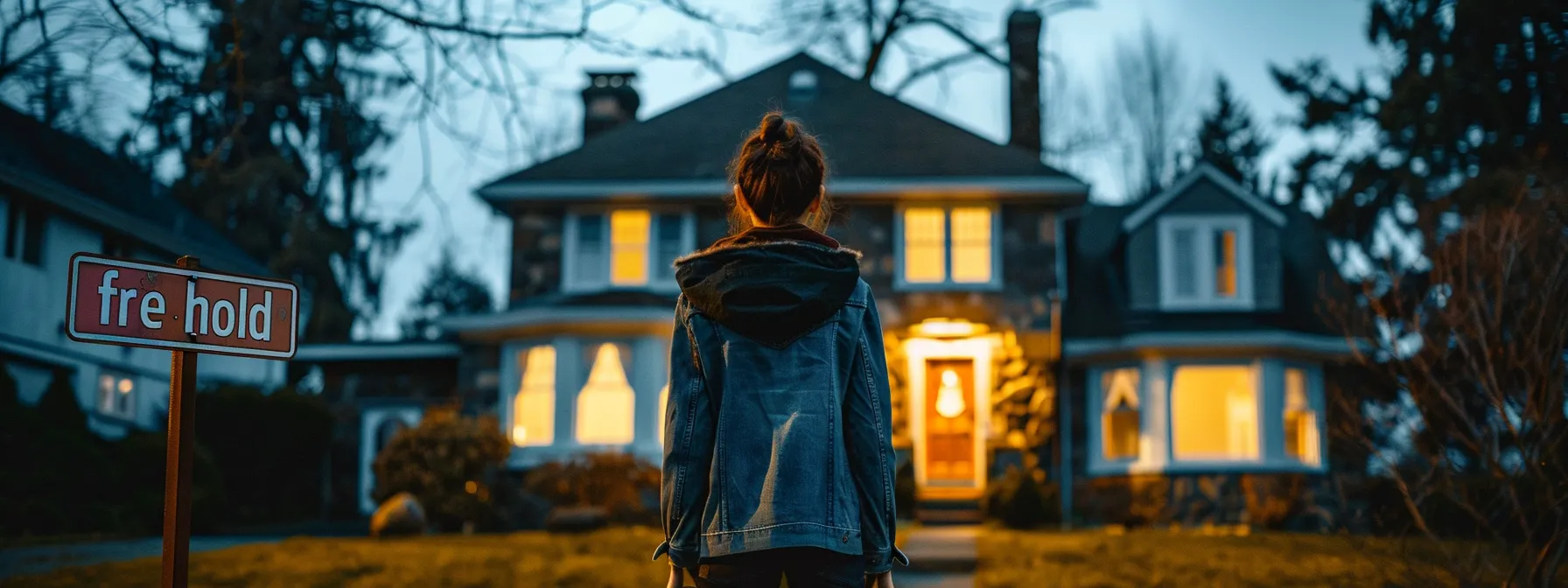Choosing Between Freehold and Leasehold Properties in Singapore
Are you torn between freehold and leasehold properties in Singapore? This guide will help you make an informed decision. We’ll explore the key differences between these property types, factors to consider when choosing, and their roles in Singapore‘s real estatemarket. By the end, you’ll understand how each option affects your investment potential, loan eligibility, and long-term income prospects. Whether you’re eyeing properties in Geylang or elsewhere, this article will equip you with the knowledge to select the right property for your needs and financial goals.
Understanding Freehold Properties in Singapore
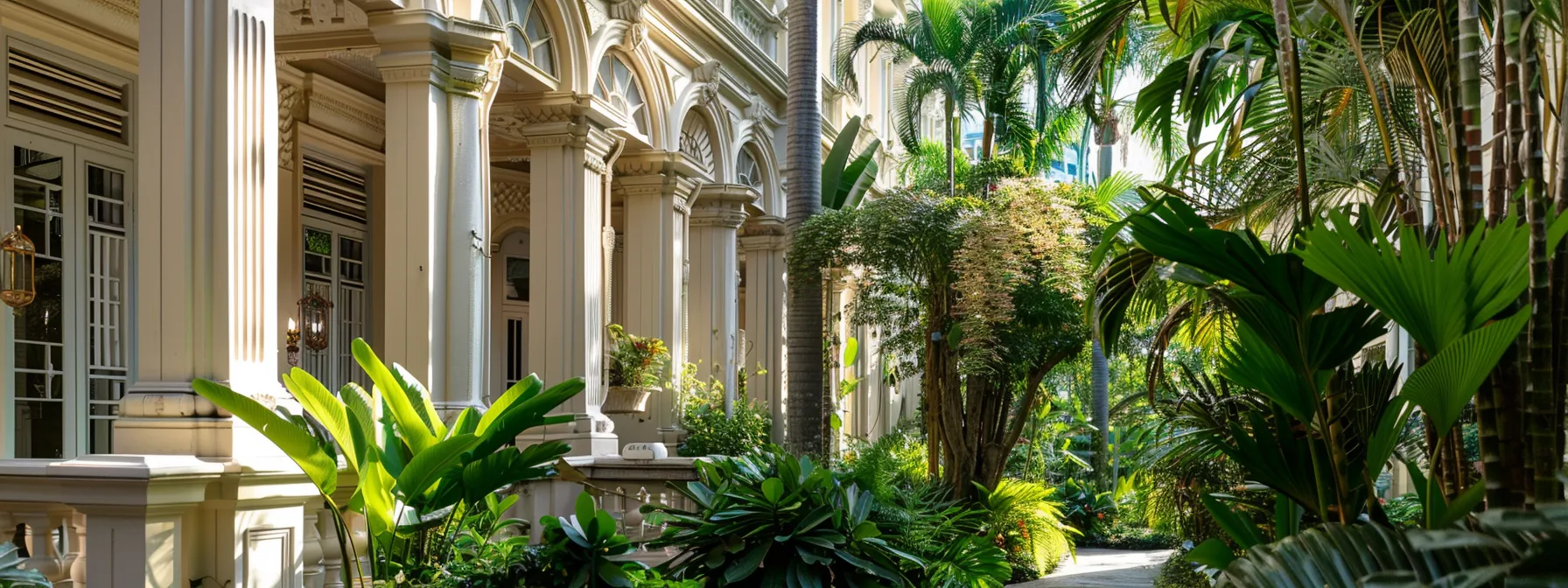
When considering property investment in Singapore, understanding freeholdownership is crucial. We’ll explore the definition of freehold properties, their advantages, and key considerations before purchase. From freehold landed properties to developments like Goodwood Grand, you’ll gain insights into the benefits and potential drawbacks of this ownership type in prime areas such as Marine Parade.
Defining FreeholdOwnership in the Singaporean Context
In Singapore, freeholdownership grants you perpetual rights to a property, allowing you to hold it indefinitely. This type of ownership is highly sought after, especially in prime areas like Bukit Timah, where freehold commercial properties and condos for sale are in high demand. When you purchase a freehold property, you have the option to retain it for generations or sell it at your discretion, potentially commanding a higher percentage of the market value compared to leasehold properties.
- Perpetual ownership rights
- Popular in prime areas like Bukit Timah
- Higher resale value potential
- Flexibility to retain or sell
Advantages of Investing in Freehold Properties
Investing in freehold properties in Singapore offers several advantages that can enhance your real estate portfolio. You’ll benefit from potentially higher market values, especially in sought-after areas like Kallang, where freehold land is particularly valuable. Unlike leasehold properties, freehold assets don’t depreciate over time due to lease expiry, making them attractive to banks for financing and potentially easier to sell in the future. This stability in the market can provide you with greater long-term financial security and flexibility in your property investment strategy.
Considerations Before Purchasing a Freehold Property
When considering a freehold property purchase, you must weigh several factors carefully. While a freeholdapartment in Pasir Ris or a bedroom condo in Bukit Timah might seem appealing, consider your long-term financial plans and mortgage options. Freehold properties often command higher prices, so assess your budget and financing capabilities thoroughly. Additionally, evaluate the property’s location, potential for appreciation, and your personal needs to ensure it aligns with your investment goals.
Now that we’ve explored freehold properties, let’s shift our focus. Leasehold properties in Singapore offer a different perspective on homeownership, with unique advantages worth considering.
Exploring Leasehold Properties in Singapore
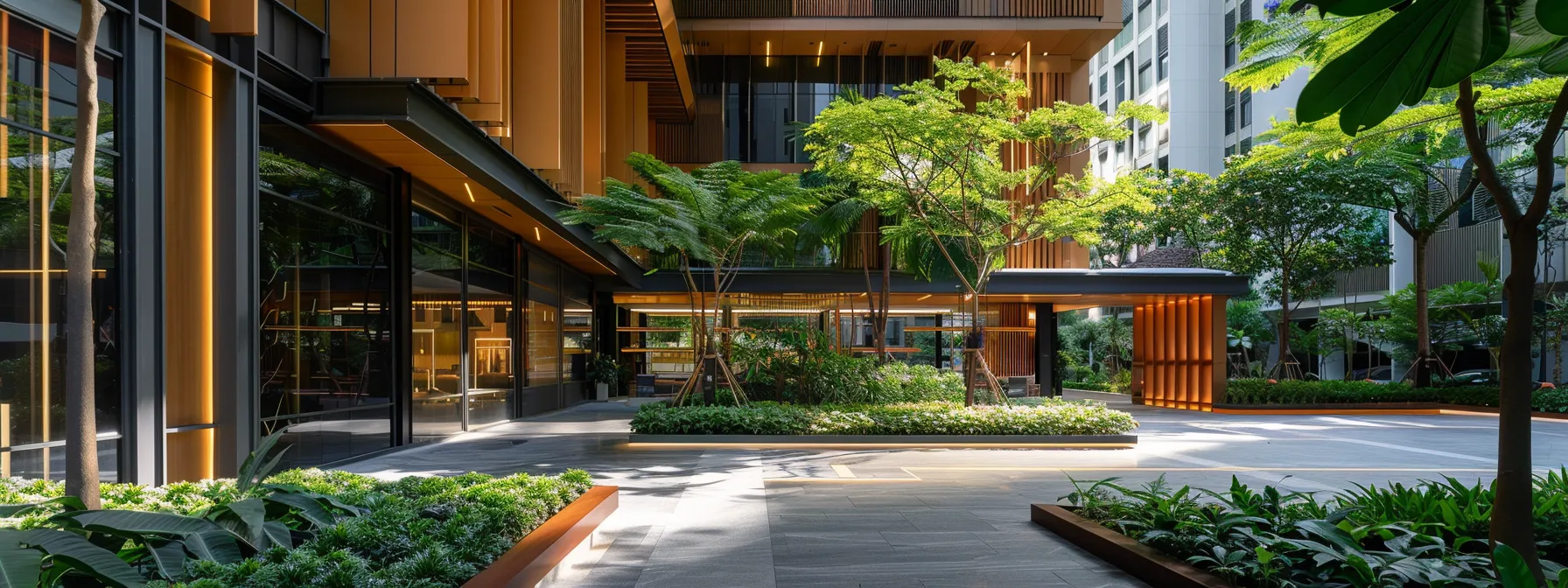
When exploring leasehold properties in Singapore, you’ll encounter unique ownership structures that can impact your investment. From understanding leasehold ownership to evaluating benefits and key factors, this section guides you through essential aspects of leasehold properties. Learn how price comparisons with freehold options, renting possibilities, and locations like Changi influence your decision-making process.
What Leasehold Ownership Means for Buyers
When you consider leasehold ownership in Singapore, you’re entering into a time-limited property agreement. Whether you’re looking at a lease in Katong, Tampines, or Bukit Batok, you’ll find that these properties often come at a lower cost compared to freehold options. Your lease typically ranges from 30 to 99 years, and as it diminishes, so does the property’s value, which impacts your long-term investment strategy and potential resale opportunities.
Benefits of Leasehold Properties in the Market
When considering leasehold properties in Singapore, you’ll find several benefits that make them attractive options in the market. These properties often offer lower entry prices compared to freehold counterparts, making them more accessible for first-time buyers or investors with budget constraints. In areas like Hougang, you can leverage your Central Provident Fund to purchase leasehold properties, potentially easing the financial burden. While the land tenure is limited, leasehold properties can still provide significant value, especially if you’re not looking for the cheapest freehold landed property in Singapore but rather a more affordable entry into property ownership.
Important Factors When Considering Leasehold Purchases
When considering leasehold purchases in Singapore, you need to evaluate several crucial factors. The property’s location, such as proximity to Mountbatten MRT station or Orchard Road, can significantly impact its value and potential appreciation. You should also compare the leasehold property’s price with similar freehold properties in Singapore to ensure you’re getting a fair deal. Additionally, consider the remaining lease duration, as this affects the property’s valuation and your ability to resell or pass it on to future generations. If you’re looking at properties in a village-like setting, factor in potential redevelopment plans that could affect the area’s future landscape and your investment‘s long-term viability.
Leasehold properties offer unique opportunities in Singapore‘s real estatemarket. Let’s compare them to freehold options and uncover the key differences that could impact your investment decision.
Key Differences Between Freehold and Leasehold Properties
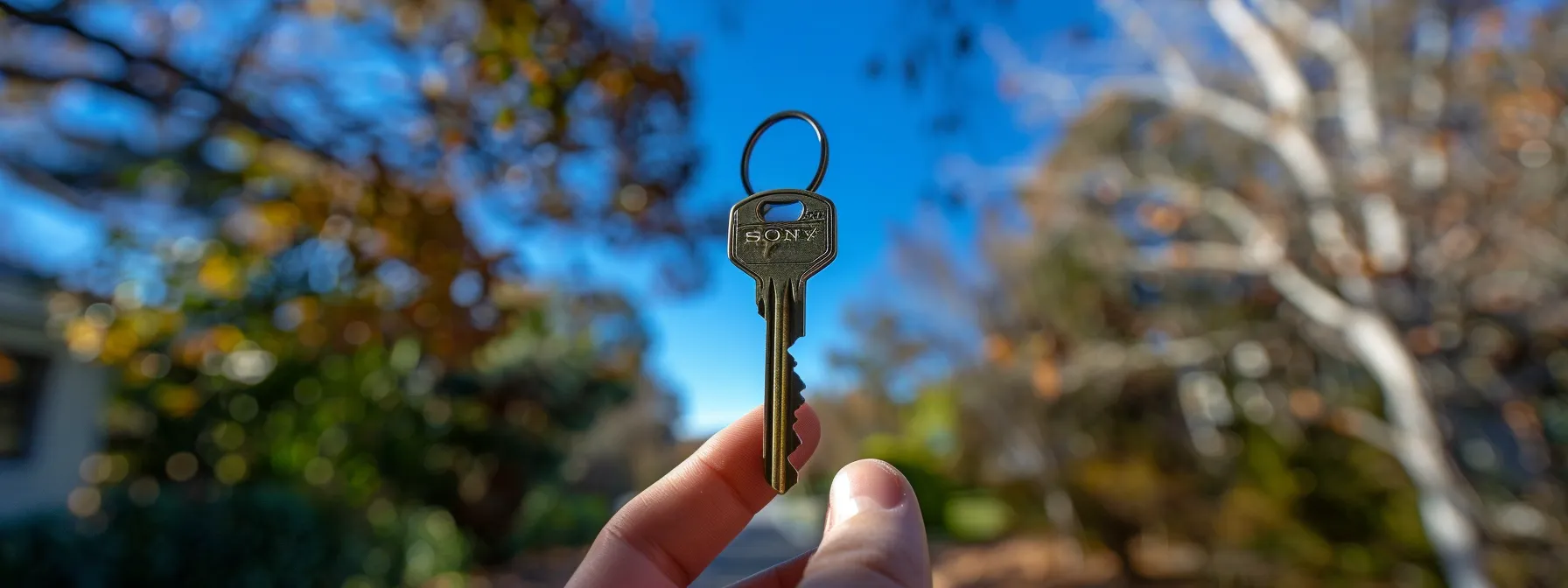
When choosing between freehold and leasehold properties in Singapore, understanding their key differences is crucial. We’ll compare ownership duration and rights, examine variations in property value and appreciation, and explore legal implications and restrictions. Whether you’re considering options in Ang Mo Kio or Toa Payoh, these insights will help you make an informed decision.
Comparing Ownership Duration and Rights
When comparing freehold and leasehold properties in Singapore, you’ll find significant differences in ownership duration and rights. Freehold properties grant you perpetual ownership, allowing you to hold the property indefinitely and pass it down through generations. Leasehold properties, on the other hand, come with a fixed tenure, typically 99 years or less, after which the property reverts to the state. This distinction affects your long-term property rights and the potential for estate planning, influencing your decision based on your investment goals and family considerations.
Variations in Property Value and Appreciation
When considering property value and appreciation, you’ll find notable differences between freehold and leasehold properties in Singapore. Freehold properties generally maintain their value better over time and may appreciate more due to their perpetual ownership. Leasehold properties, however, tend to depreciate as their lease shortens, especially after the 30-year mark. You’ll need to weigh these factors carefully, particularly if you’re looking at properties in areas like Ang Mo Kio or Toa Payoh, where both types are available.
Understanding Legal Implications and Restrictions
When considering freehold and leasehold properties in Singapore, you must understand the legal implications and restrictions that come with each type of ownership. Freehold properties offer fewer restrictions on property use and modifications, giving you more control over your investment. However, leasehold properties often come with more stringent regulations, particularly regarding renovations and en bloc sales. You’ll need to carefully review the terms of your lease agreement and be aware of potential limitations on property usage, especially as the lease nears its end.
You’ve learned the key differences. Now let’s explore how to choose between them. These factors will guide your decision.
Factors to Help You Decide Between Freehold and Leasehold
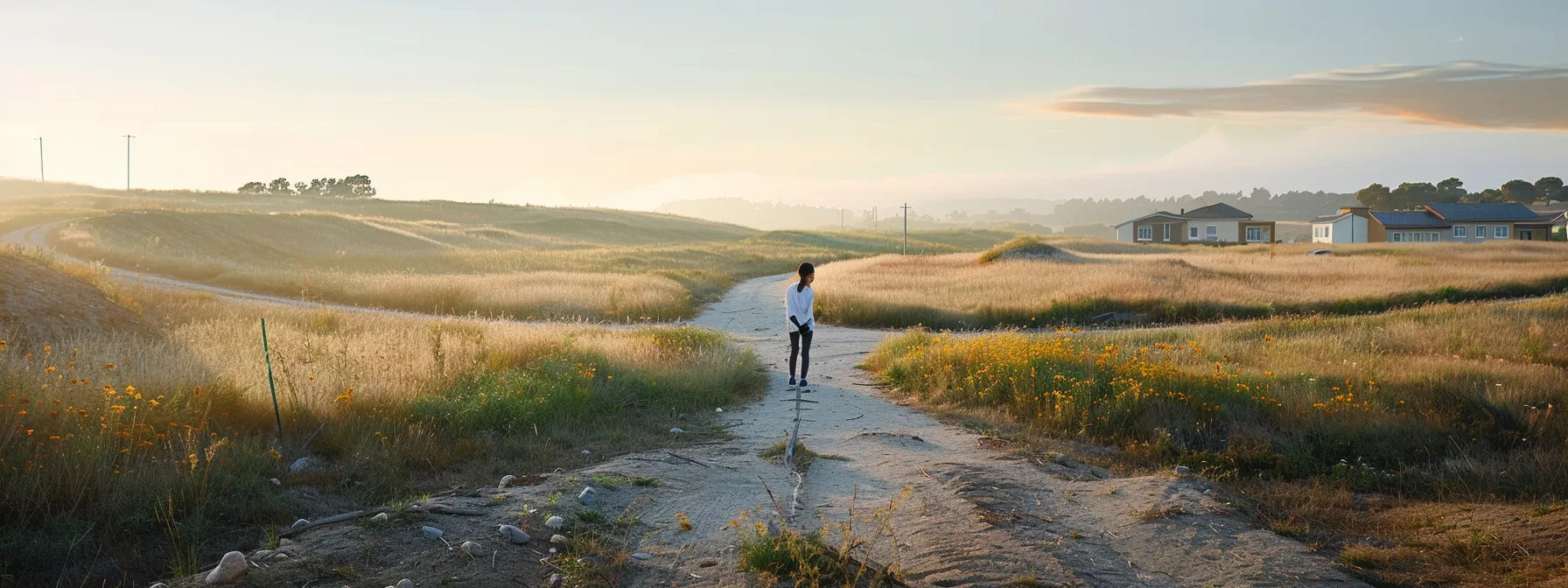
When deciding between freehold and leasehold properties in Singapore, consider your investment goals, financial capacity, and location preferences. We’ll explore how to align your property choice with long-term objectives, assess affordability, and evaluate potential developments in your chosen area. These factors will help you make an informed decision that suits your needs and budget.
Aligning Property Choice With Investment Goals
When aligning your property choice with investment goals in Singapore, consider your long-term objectives. If you aim for generational wealth or value stability, a freehold property might be more suitable. However, if you’re focused on shorter-term gains or have budget constraints, a leasehold property could offer better initial returns. Assess your investment horizon, risk tolerance, and financial capacity to make an informed decision:
- Freehold: Long-term stability, potential for higher appreciation
- Leasehold: Lower entry cost, potentially higher initial rental yields
- Consider location impact on both types (e.g., prime areas vs. emerging neighborhoods)
- Evaluate potential for en bloc sales in leasehold properties
Assessing Financial Implications and Affordability
When assessing the financial implications and affordability of freehold and leasehold properties in Singapore, you need to consider more than just the initial purchase price. Freehold properties typically come with a higher upfront cost but may offer better long-term value. Leasehold options often have lower initial prices but can incur additional fees for lease renewals. You should evaluate your budget, mortgage options, and potential for capital appreciation to determine which type of property aligns best with your financial goals and capacity.
Evaluating Location and Future Development Plans
When evaluating location and future development plans, you need to consider both immediate and long-term factors. For freehold properties, focus on established areas with stable property values and potential for organic growth. With leasehold options, look for upcoming neighborhoods slated for infrastructural improvements or urban renewal projects that could boost property values. Assess proximity to amenities, transportation hubs, and future developments that might impact your property’s desirability and value over time.
The decision between freehold and leasehold affects more than just you. It shapes Singapore‘s property landscape in ways you might not expect.
The Role of Freehold and Leasehold in Singapore’s Property Market

Understanding the role of freehold and leasehold properties in Singapore‘s market is crucial for your property decision. We’ll explore current trends affecting choices, government policies impacting ownership types, and market demand for both options. These insights will help you navigate the property landscape and make an informed decision based on your needs and market conditions.
Current Trends Affecting Property Choices
Current trends in Singapore‘s property market are significantly influencing your choices between freehold and leasehold properties. You’ll notice a growing preference for freehold properties in mature estates due to their scarcity and potential for long-term appreciation. However, leasehold properties in upcoming areas with planned infrastructure developments are gaining traction, especially among younger buyers and investors looking for more affordable options. Your decision will likely be influenced by these trends, along with factors such as location, price, and personal preferences:
Government Policies Impacting Ownership Types
Government policies in Singapore significantly impact your choice between freehold and leasehold properties. You’ll find that land use regulations, such as the Selective En bloc Redevelopment Scheme (SERS), can affect leasehold property values and your long-term investment prospects. Additionally, policies like the Additional Buyer’s Stamp Duty (ABSD) and Total Debt Servicing Ratio (TDSR) influence affordability and financing options for both freehold and leasehold properties:
Market Demand for Freehold vs. Leasehold Properties
In Singapore‘s property market, you’ll find varying demand for freehold and leasehold properties based on location, price point, and buyer demographics. Freehold properties typically command higher premiums and are favored by long-term investors and wealthy buyers, especially in prime districts. Conversely, leasehold properties often attract first-time homeowners and investors seeking more affordable options, particularly in emerging neighborhoods with growth potential. Your decision should factor in these market dynamics, considering both current demand trends and future resale prospects to align with your investment goals.
Property ownership isn’t just about walls and rooms. It’s about making a choice that fits your life and your future.
Making an Informed Decision on Property Investment

Making an informed decision on property investment in Singapore requires careful consideration. You’ll benefit from tips tailored for first-time buyers, insights from real estate professionals, and resources to assess property options. These elements will guide you through the decision-making process, helping you choose between freehold and leasehold properties that align with your goals and budget.
Tips for First-Time Property Buyers in Singapore
As a first-time property buyer in Singapore, you should consider several key factors when choosing between freehold and leasehold properties. Start by assessing your long-term goals and financial capacity, as this will guide your decision. Research thoroughly and compare prices, locations, and potential for appreciation. Consider the following tips to make an informed choice:
- Evaluate your budget and loan options carefully
- Consider future resale value and market trends
- Assess the property’s location and nearby amenities
- Consult with experienced real estate agents for insights
- Review government policies that may affect your purchase
- Factor in additional costs like stamp duties and maintenance fees
Consulting With Real Estate Professionals
When navigating the complex decision between freehold and leasehold properties in Singapore, consulting with real estate professionals can provide invaluable insights. You’ll benefit from their expert knowledge of market trends, property valuations, and area-specific factors that influence investment potential. Real estate agents can offer personalized advice based on your financial situation and long-term goals, helping you make a more informed choice. Consider the following aspects when seeking professional guidance:
Utilizing Resources to Assess Property Options
To assess property options effectively, utilize online resources like the Urban Redevelopment Authority’s (URA) website for comprehensive property information and transaction data. You can access historical prices, zoning plans, and future development initiatives that may impact property values. Additionally, explore property portals for current listings, pricing trends, and neighborhood insights. These tools will help you compare freehold and leasehold options objectively, considering factors such as location, amenities, and potential appreciation.
Making the Right Choice: Freehold or Leasehold in Singapore
Choosing between freehold and leasehold properties in Singapore is a critical decision that can significantly impact your long-term investment goals and financial well-being. Understanding the nuances of each ownership type, including their advantages, limitations, and market dynamics, is essential for making an informed choice that aligns with your personal needs and financial capacity. Factors such as location, future development plans, government policies, and current market trends play crucial roles in determining the best option for your unique circumstances. By carefully considering these aspects and seeking guidance from real estate professionals, you can navigate the complexities of Singapore‘s property market and make a decision that offers the best value and potential for your future.

